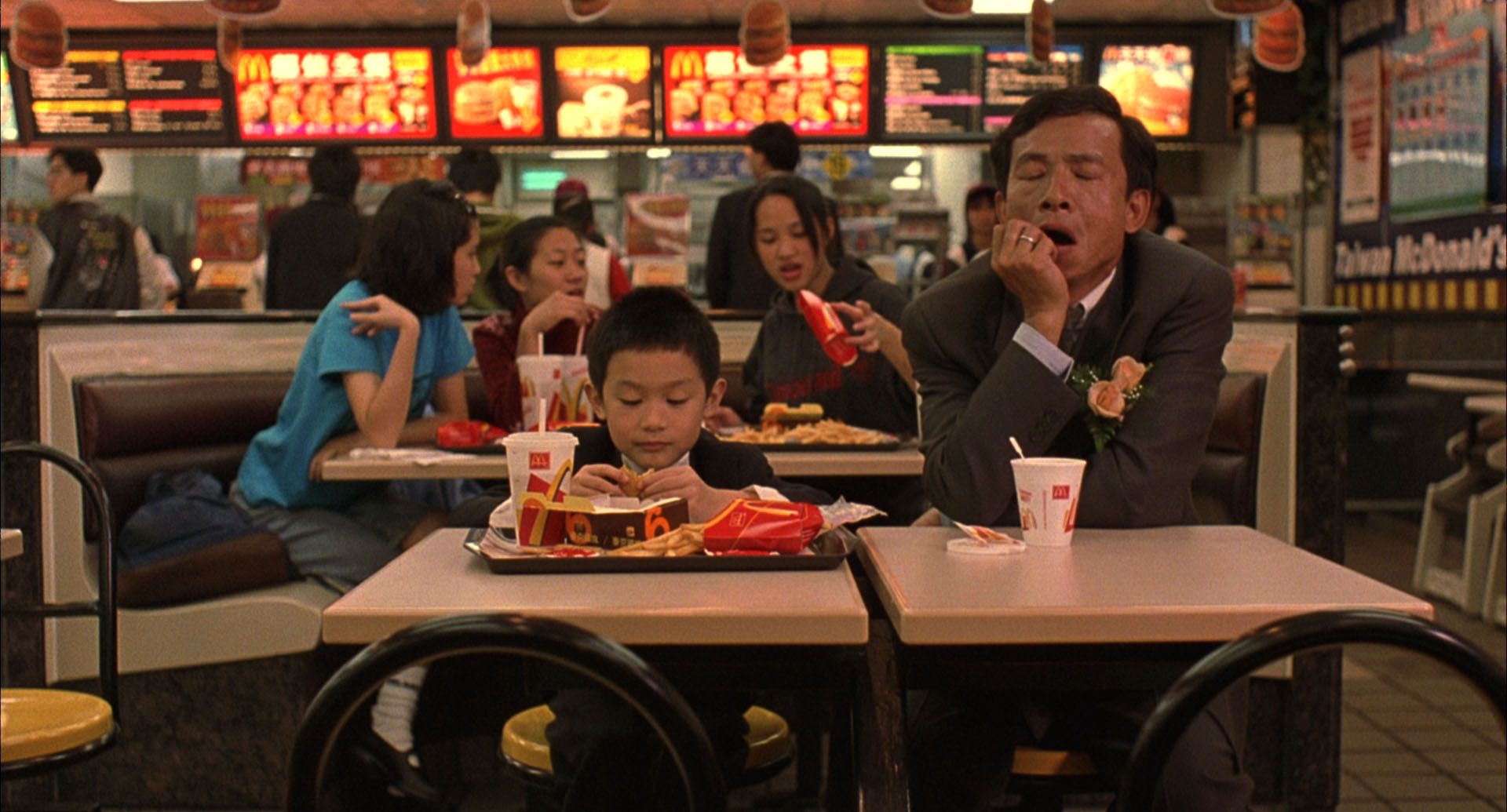On March 5th, something brilliant, and much overdue, happens. A Region 2 Criterion Collection Blu-Ray of a film long missing from many a DVD shelf is made available; just as, coincidentally, the film is ready to stream from the newly launched UK iteration of the streaming service Filmstruck. The film in question is Edward Yang’s sublime Yi Yi (2000).
Living in Taipei, the Jian family is comprised of parents N.J. (Wu Nien-jen) and Min-Min (Elaine Jin), and their two children Ting-Ting (Kelly Lee) and Yang-Yang (Jonathan Chang). This small unit is thrown into a series of crises when their beloved grandmother falls into a coma. The doctor suggests each family member should talk to Grandma while comatose, which N.J. describes as an activity “like prayer”. When Min-Min realises she has nothing to say her mother, she descends into a profoundly moving monologue about her “blank” existence, and joins a colleague’s religious retreat, temporarily abandoning the others: each of whom is just trying to navigate their own way through life as painlessly as possible, with little success.
What’s chiefly notable about Yi Yi is its visual style. There is always a sense of separation between the camera and its subject. Scenes often play out through glass, or reflections, or on TV screens, or at a remarkable spatial remove from the action being filmed. For Ingmar Bergman, the “human face is most important subject of the cinema”. For Yang, conversely, the subject of the cinema is the group composition, or wide-angle, deep focus photography of a person or a pair of people overwhelmed by city surroundings, encinctured by a surfeit of negative space. But this doesn’t distance you from the characters. Quite the opposite: you lurch forward in your seat, examining closely everything you see and everything you hear. It reinforces your sympathy for these people, it multiplies its depth.
And sympathising is easy in the first instance, because these lives are impossibly well-defined and characterised. N.J., husband and father, is memorable from his first moments on screen as a kindly man, subdued, honest-to-the-marrow-of-his-bones. At his brother-in-law’s wedding, he runs into an old classmate, his first love, Sherry (Su-Yun Ko). N.J. travels to Tokyo on a work assignment, where he meets again with Sherry, and they relive some of their youth together.
And the children are perhaps even more sympathetic. Ting-Ting is a great student and a considerate daughter, but listen to her speak, and it becomes clear that she’s a sad well of unspoken feelings. Accordingly, her line readings are unforgettable; her every breathy syllable is delivered with downward inflection, as if every word were a secret regretfully imparted. Her brother Yang-Yang is an infinitely sweet child who swings between hilarious mischievousness and genuinely pensive interrogations; before delivering the film’s final words, words so affecting they seem engineered at a molecular level to activate my tear-ducts.
What’s so beautiful about Yang’s storytelling (between thisand his 1991 film A Brighter Summer Day) is the indirectness of incident, as if you’re a child watching adults speak and act. The film can delight and depress, surprise and restore all within the groove of a single scene. It’s the most involving of narratives, because it feels like a life lived. And I don’t think I can pay a film a higher compliment.
Yi Yi is available to buy now on Blu-ray through Criterion Collection in the UK.
Image: Criterion

